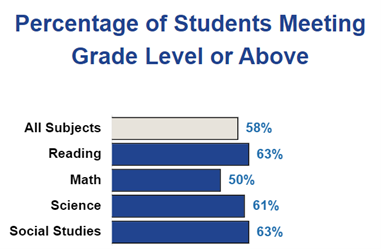On Wednesday, the Houston Chronicle shed some light on a big and growing problem—education elites getting rich at taxpayer expense. And special attention was paid to the now-retired superintendent of Cypress-Fairbanks ISD (CFISD), Mark Henry.
In its piece, the Chronicle’s writer notes:
“Before his retirement in December 2023, Henry collected a base salary of $537,775 after 12 years leading the district. The former superintendent’s compensation package also included phone and travel allowances totaling $24,000, bringing his total pay up to almost $561,000. By comparison, the average base teacher salary in the district was about $67,000 in the 2023-24 school year.” [emphasis mine]
For perspective, consider that Henry’s base salary ($537,775) was almost as much as the salaries paid to the President of the United States ($400,000) and the Texas Governor ($153,750)—combined.
What justified such excessive compensation isn’t clear either. After all, only 58% of the district’s students could read, write, and do math at or above grade level, according to txschools.gov. It’s difficult to see how these student outcomes might justify such a pronounced salary level.

Of course, Henry isn’t the only CFISD official to pull down big bucks. The Chronicle notes that Henry’s successor, Douglas Killian, will make $409,000 in his first year—which, to be fair, is a pay cut, but it is still more than the POTUS earns annually. As if to make matters worse, it’s also observed that:
“Members of the district’s cabinet, legal counsel, and assistant superintendents rounded out the rest of Cy-Fair’s top-paid employees last school year. Most of these employee compensation packages included both a base salary in addition to supplemental allowances for travel and cell phones. In all, eight of the top employees made annual salaries totaling over $200,000.”
The main problem with all of these sky-high salaries is, of course, that someone has to pay for them. And given the nature of public education, that generally means people will be paying higher and higher property taxes.
It’s true that CFISD isn’t alone in doling out supersized salaries to its top-level employees. One need only peruse the Texas Education Agency’s superintendent salary database to see as much. But it is certainly one of the worst abusers and for that it deserves to be called out, as the Chronicle has done.
At some point, the Texas Legislature must address the obvious need for public sector compensation reform with an eye toward reining in excessive salaries and tamping down on gold-plated benefits. It’s very clear that local government officials are not incentivized to do it on their own, for whatever reason. So, let’s hope that commonsense reforms come sooner rather than later.